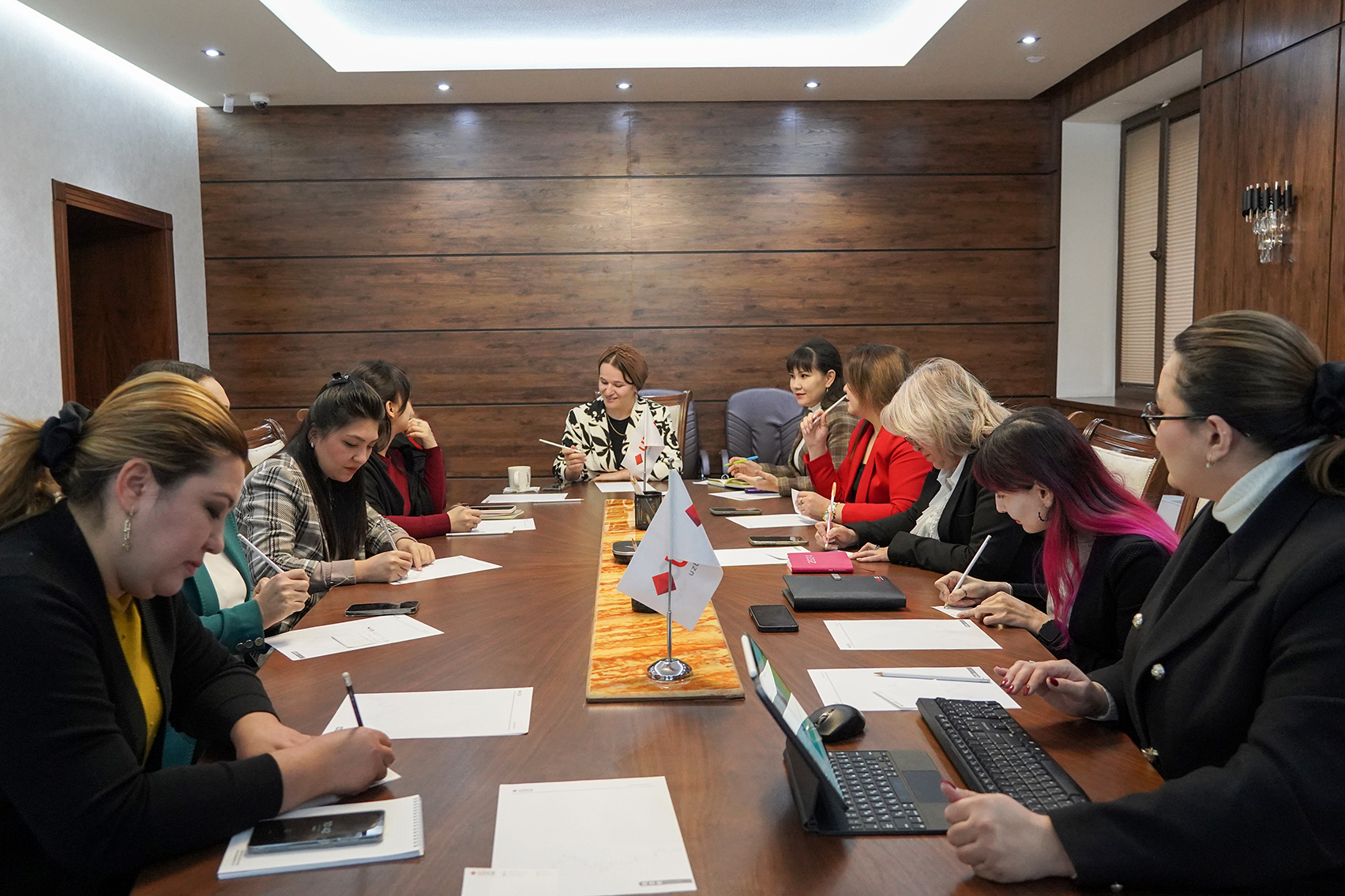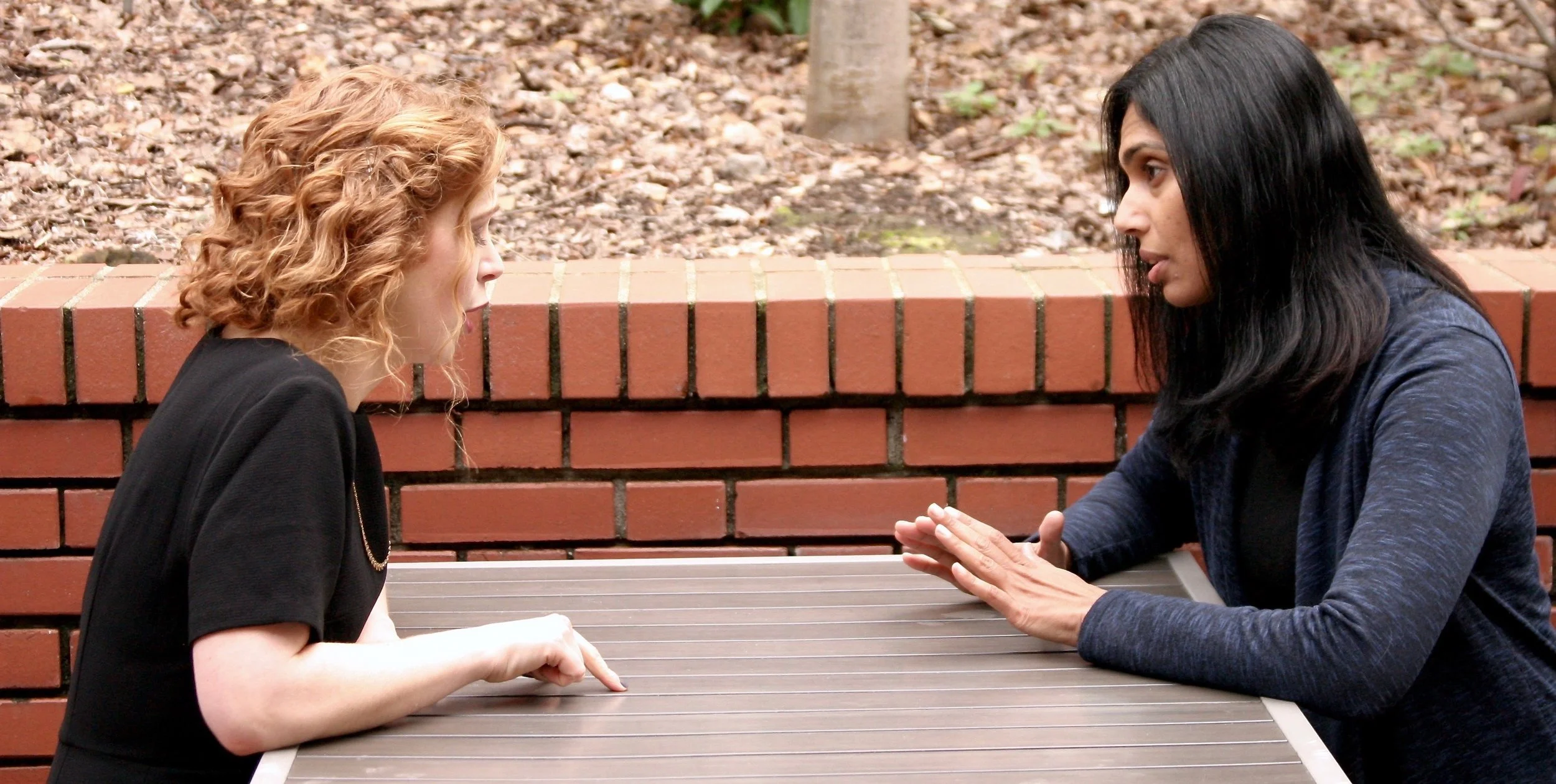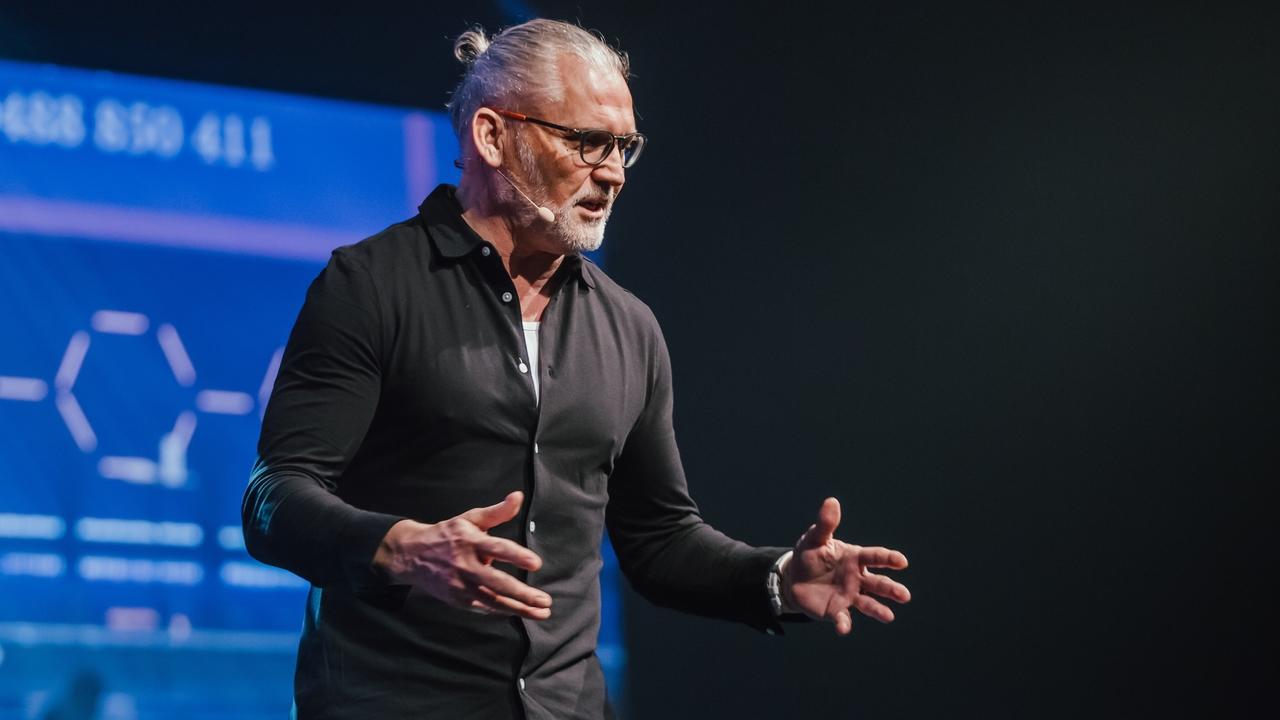How Sharing Knowledge Changed My Life
I never thought standing in front of a room full of strangers at the community center would become one of the most important things I ever did. It was spring of 2018, and I had just retired after working thirty-seven years as an administrative assistant in Edmonton. My daughter suggested I volunteer teaching basic computer skills to seniors. "Mom, you're good with people and you know computers," she said. I was nervous, but I agreed to try it for one month.
That one month turned into six years of teaching, and it completely transformed who I am. When I started, my hands would shake when I introduced myself. I would forget what I wanted to say halfway through a sentence. I avoided eye contact and spoke so quietly that people in the back row couldn't hear me. But something remarkable happened as the weeks went by - I started to change. Not just a little bit, but in ways that affected every part of my life.
Teaching others in my community gave me something I didn't even know I was missing. It gave me confidence. It gave me purpose. It helped me find my voice after years of staying quiet in meetings and letting others speak for me. And the funny thing is, I learned so much more than my students did. Every class taught me something new about communication, about patience, about the power of sharing what you know with people who want to learn.
This is my story about personal growth through community teaching, and the lessons I learned that changed everything for me. If you've ever thought about volunteering to teach or share your knowledge but felt too scared or unsure, I hope my experience helps you take that first step.
The First Day Fear and What It Taught Me
I'll never forget walking into that first class. Twelve people sat waiting in folding chairs, looking at me expectantly. My prepared notes felt heavy in my shaking hands. I had spent three days writing out everything I wanted to say, practicing in front of my bathroom mirror, timing myself. But when I opened my mouth, my mind went completely blank.
The silence lasted maybe ten seconds, but it felt like an hour. Then something unexpected happened. A woman in the front row smiled at me and said, "Take your time, dear. We're just happy you're here to help us." That kindness broke through my panic. I took a deep breath, introduced myself properly, and somehow made it through that first ninety-minute session.
What I learned that day was profound - people are generally kind and patient when you're trying to help them. They don't expect perfection. They appreciate effort and genuine care more than flawless delivery. This realization became the foundation for everything that followed. I stopped trying to be perfect and started focusing on being helpful and authentic instead.
Building Confidence One Class at a Time
The second class was easier than the first. The third was easier than the second. By the fourth week, I noticed I wasn't reading from my notes as much. I was making eye contact. I was even making little jokes that got people laughing. My voice was getting stronger, more steady. I was beginning to trust myself.
In Canada, especially in smaller communities like mine outside Edmonton, there's a real need for people willing to share practical skills. Libraries, community centers, and senior centers across Alberta, Saskatchewan, and Manitoba are always looking for volunteers. When I started teaching, I thought I was doing them a favor. But really, they were doing one for me. They gave me a safe space to practice speaking in front of groups, to make mistakes, to grow.
Discovering My Communication Style
About three months into teaching, I realized something important - I had developed my own way of explaining things. I wasn't copying how other teachers did it or following a script anymore. I had found my voice, literally and figuratively. I learned that I'm good at breaking complex ideas into simple steps. I discovered I have patience for repetition that some younger teachers don't have. I found out I'm funny when I'm relaxed and not trying too hard.
Teaching forced me to think about how I communicate in ways I never had before. When someone doesn't understand something, you can't just repeat the same words louder. You have to find different words, different examples, different approaches. This skill transferred into every other part of my life. I became better at explaining things to my grandchildren. I got better at expressing my needs to my doctor. I even started speaking up at my book club instead of just nodding along.
Learning to Read the Room
One of the most valuable skills I developed was learning to read people's faces and body language. When I see confused expressions, I know to slow down and explain differently. When I see people leaning forward with interest, I know I'm on the right track. When someone looks frustrated, I've learned to pause and check in with them privately.
This awareness made me a better listener too. I stopped thinking about what I would say next and started really paying attention to what people were saying and showing me through their reactions. In Canadian culture, especially in the prairies where I'm from, people often don't speak up directly when they're confused or struggling. Learning to notice these subtle signs became crucial for effective teaching and communication.
The Unexpected Benefits Beyond the Classroom
The changes in my confidence and communication abilities didn't stay contained to my teaching. They spread into every area of my life in ways I never anticipated. About a year after I started teaching, I was at a family gathering. Usually, I would sit quietly while my siblings and their spouses dominated conversations. But that day, I shared a funny story from my class about a student who accidentally sent an email to the wrong person. Everyone laughed. People asked questions. For the first time in years, I felt like I had something valuable to contribute to family conversations.
My relationship with my husband improved too. After forty-two years of marriage, we had fallen into patterns where I would just agree with whatever he suggested. But teaching gave me practice expressing my opinions and defending my ideas respectfully. I started speaking up about where I wanted to go for dinner, how I wanted to spend weekends, what bothered me about certain habits. Our relationship became more balanced and honest.
Building Community Connections
Teaching also connected me to my community in meaningful ways. I live in a town of about fifteen thousand people, and before I started volunteering, I knew maybe thirty people well enough to have a real conversation with. Now I can't go to the grocery store without running into former students who want to tell me about their grandchildren's photos they finally figured out how to share online, or the email they successfully sent to their cousin in Vancouver.
These connections matter more than I can express. Canada can be isolating, especially during long winters when it's too cold to go out much. Having these relationships, knowing I've made a difference in people's lives, gives me purpose and keeps loneliness away. Several of my former students have become genuine friends. We meet for coffee. We go to church events together. We support each other.
Overcoming Specific Communication Challenges
Teaching revealed communication weaknesses I didn't know I had, then gave me opportunities to work on them. I discovered I used filler words constantly - "um," "like," "you know" - probably fifty times in a single class. Once I became aware of this habit, I worked on pausing instead of filling silence with meaningless sounds. It took months, but I improved significantly.
I also learned I had a tendency to apologize unnecessarily. "Sorry, but could I just explain this part again?" or "Sorry if this doesn't make sense." A student finally pointed out that I didn't need to apologize for teaching them - that was why they came to class! This awareness helped me recognize how often I apologized in regular life too, especially to men, and how it undermined my confidence and authority.
Dealing with Difficult Situations
Not every class went smoothly, and those challenging moments taught me the most about communication and conflict resolution. I had students who were frustrated with technology and took that frustration out on me. I had people who talked over others or dominated discussions. I had folks who insisted I was wrong even when I knew I wasn't.
Learning to handle these situations with grace and firmness was incredibly valuable. I developed strategies for redirecting conversations, setting boundaries respectfully, and staying calm when people were upset. These skills helped me in situations outside teaching too - dealing with difficult customer service representatives, handling disagreements with family members, advocating for myself in medical appointments.
The Ripple Effect on Personal Growth
The confidence I built through teaching created a positive cycle in my life. As I became more comfortable speaking in front of groups, I started saying yes to other opportunities I would have refused before. I joined the board of directors for our local library. I started leading a weekly walking group for seniors. I even gave a presentation at our regional community center conference about teaching technology to older adults.
Each new experience built on the previous ones. The skills I learned teaching computer basics transferred to teaching other subjects. I started a knitting circle where I teach beginners, and last year I began volunteering at the food bank where I train new volunteers. Every teaching opportunity reinforces and expands my communication abilities and self-assurance.
Personal Development Through Continuous Learning
One of the most surprising lessons from teaching others was realizing how much I still had to learn myself. Students asked questions I couldn't answer, which motivated me to research and expand my own knowledge. I took online courses to improve my teaching methods. I attended workshops on adult education and communication skills offered through Alberta's community education networks.
This commitment to continuous learning transformed my mindset. Instead of seeing myself as someone whose learning years were behind her, I became a lifelong learner. I'm sixty-five years old, and I'm still growing, still improving, still discovering new capabilities. Teaching others showed me that age doesn't limit growth - only our beliefs about age do.
Practical Lessons for Anyone Considering Community Teaching
If my story resonates with you and you're thinking about volunteering to teach in your community, I want to share some practical advice based on my experience. First, start small. You don't need to commit to teaching a full semester course right away. Offer to lead a single workshop or a short series of classes. This gives you a chance to try teaching without overwhelming yourself.
Second, teach something you genuinely know and care about. I chose computer skills because I had worked with computers for decades and I saw how much seniors struggled with technology. Your subject might be cooking, gardening, financial literacy, language skills, crafts, or anything else you know well. Passion for your subject makes teaching easier and more enjoyable.
Finding Teaching Opportunities in Canada
In Canada, there are numerous organizations looking for volunteer teachers. Public libraries across every province offer community programs and often need instructors. Community centers, senior centers, immigrant settlement services, literacy organizations, and faith-based groups all provide teaching opportunities. Many of these organizations offer training and support for new volunteer teachers, which can help build your confidence before you start.
Don't let lack of formal teaching credentials stop you. Most community teaching positions for volunteers don't require education degrees. They need people with knowledge, patience, and willingness to share. Your life experience and practical skills are valuable, even if you've never taught before.
Preparing Yourself for Success
Before you start teaching, spend time preparing not just your lesson content but also yourself mentally. Accept that your first few classes probably won't be perfect, and that's okay. Everyone starts somewhere. Practice your material out loud, even if you're just talking to your cat or your reflection in the mirror. This helps you find comfortable ways to explain concepts.
Connect with other volunteer teachers if possible. Many communities have informal networks of people doing similar work. These connections provide support, advice, and encouragement when you're struggling. In my town, several of us who teach at the community center meet monthly for coffee to share experiences and ideas. These relationships have been invaluable.
The Lasting Impact on My Identity and Purpose
Looking back on six years of community teaching, I barely recognize the nervous, uncertain woman who walked into that first class. Teaching transformed not just my skills but my entire sense of who I am. I used to introduce myself as "just a retired secretary." Now I say I'm a community educator and volunteer. That shift in how I describe myself reflects a deeper shift in how I see my value and contributions.
Teaching gave me purpose during a life stage when many people struggle to find meaning. Retirement can be wonderful, but it can also leave you wondering what you're supposed to do with your time and how you matter anymore. Volunteering to teach answered both those questions for me. I have meaningful work that structures my weeks. I have clear evidence that I make a positive difference in people's lives. I have reasons to get up in the morning and goals to work toward.
Moving Forward with Confidence
Today, I'm planning to expand my teaching into new areas. I'm developing a workshop series on digital literacy specifically for newcomers to Canada, partnering with our local immigrant services organization. I'm also mentoring two new volunteer teachers at the community center, helping them develop the same confidence and skills that teaching gave me.
The journey from that terrified first day to where I am now wasn't always smooth or easy. There were classes that went poorly, students I couldn't help as much as I wanted to, moments when I questioned whether I was making any difference at all. But persisting through those challenges was part of what built my confidence and capabilities. Growth doesn't happen in comfort - it happens when we push ourselves just beyond what feels easy.
If you're considering volunteering to teach or share your knowledge in your community, I encourage you strongly to try it. You might discover, as I did, that teaching others is one of the most effective ways to teach yourself - about communication, about confidence, about your own capabilities and worth. The skills you develop and the connections you build will enrich your life in ways you cannot predict. And your community needs what you have to offer, even if you don't think you're particularly special or qualified.
Start where you are. Use what you have. Teach what you know. The rest will follow, one class and one student at a time. The growth you experience won't just change how you teach - it will change how you live.




